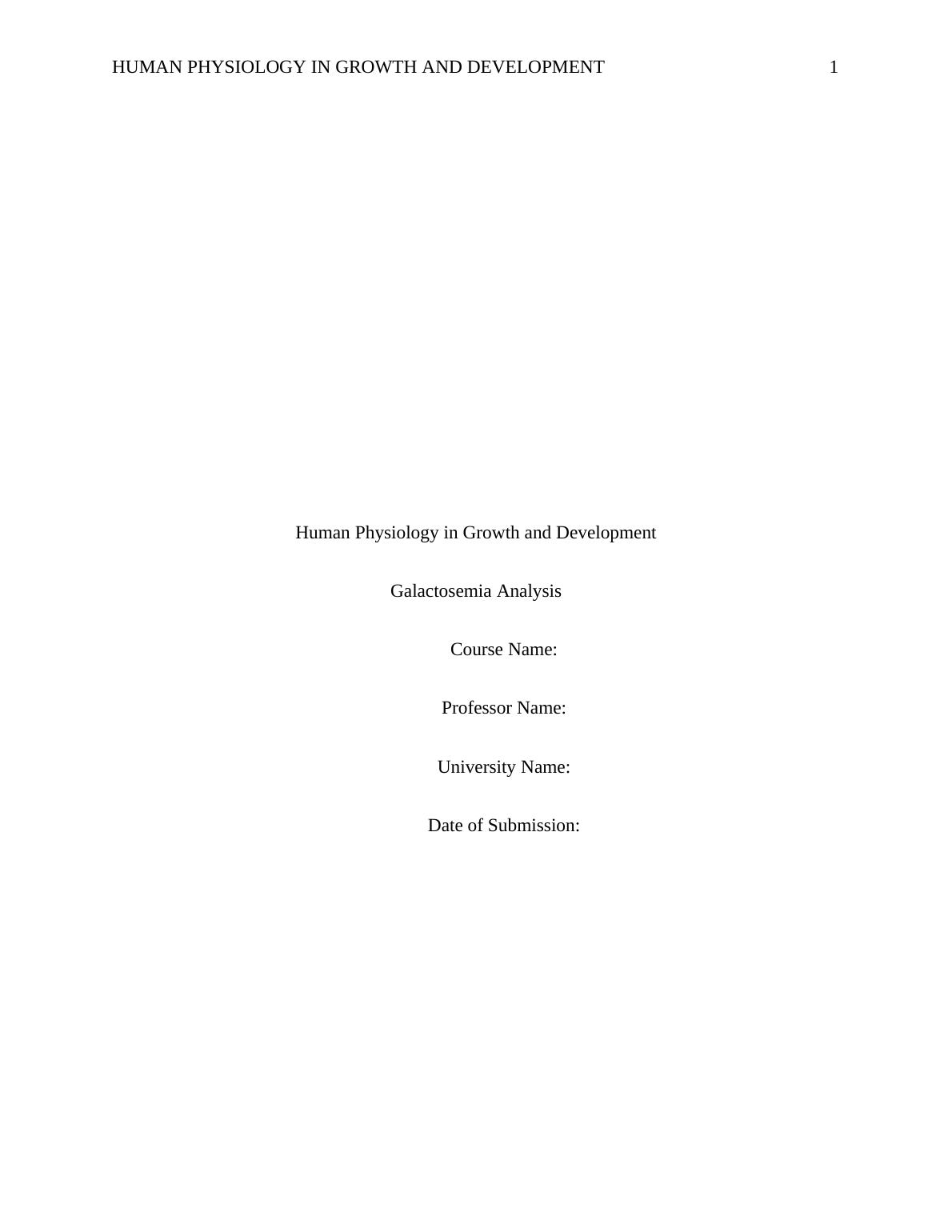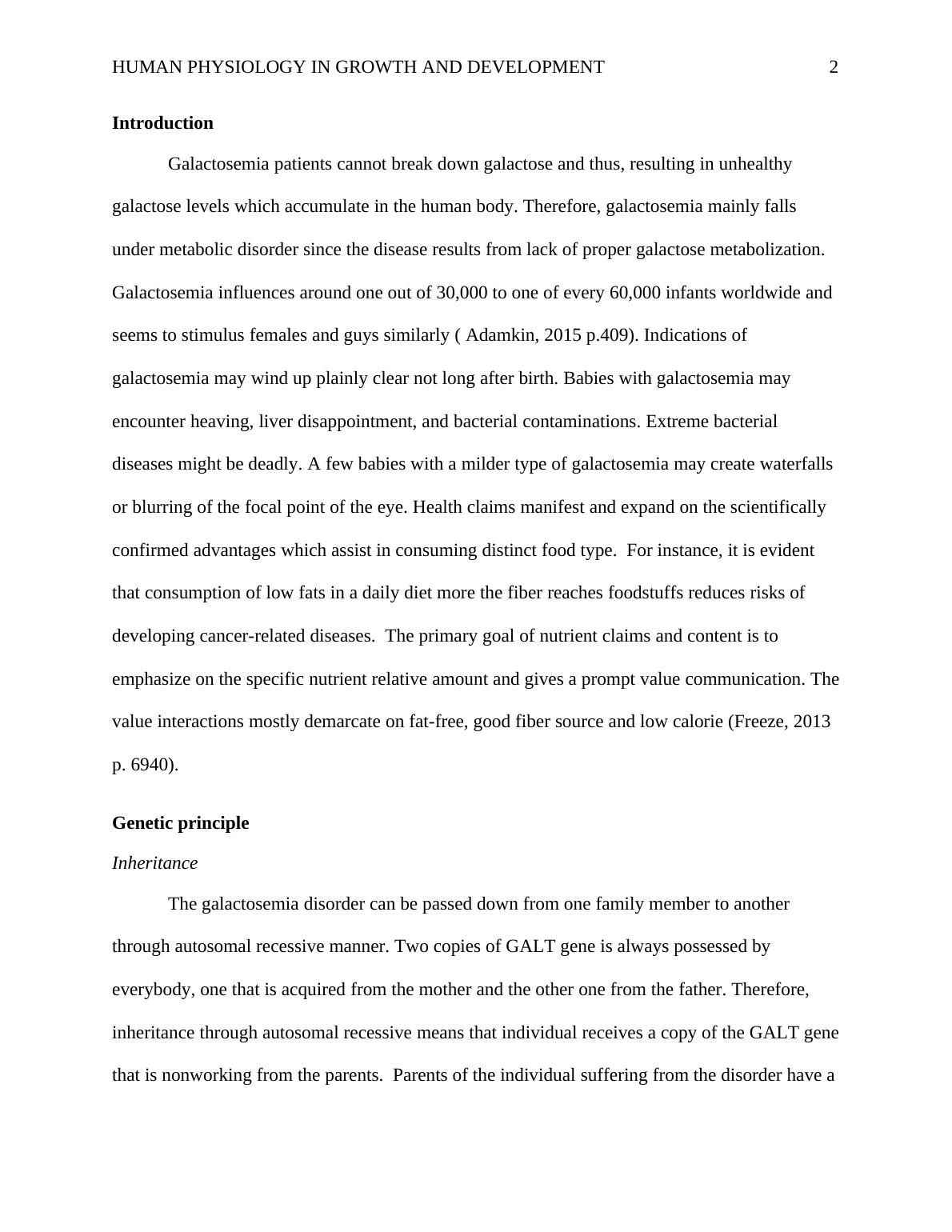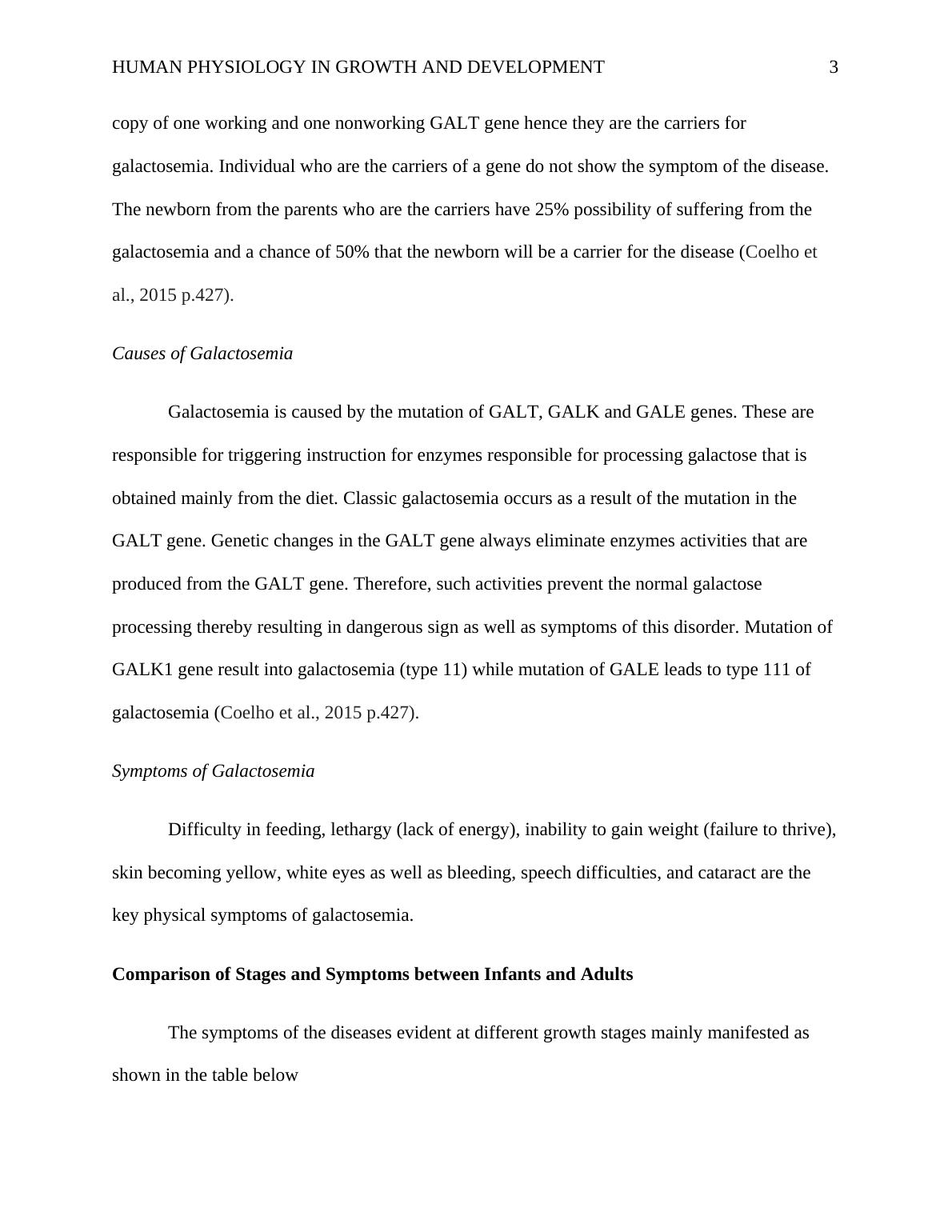Report on Human Physiology in Growth and Development
Added on 2020-04-07
9 Pages1990 Words40 Views
HUMAN PHYSIOLOGY IN GROWTH AND DEVELOPMENT 1Human Physiology in Growth and DevelopmentGalactosemia AnalysisCourse Name:Professor Name:University Name:Date of Submission:

HUMAN PHYSIOLOGY IN GROWTH AND DEVELOPMENT 2Introduction Galactosemia patients cannot break down galactose and thus, resulting in unhealthy galactose levels which accumulate in the human body. Therefore, galactosemia mainly falls under metabolic disorder since the disease results from lack of proper galactose metabolization. Galactosemia influences around one out of 30,000 to one of every 60,000 infants worldwide and seems to stimulus females and guys similarly ( Adamkin, 2015 p.409). Indications of galactosemia may wind up plainly clear not long after birth. Babies with galactosemia may encounter heaving, liver disappointment, and bacterial contaminations. Extreme bacterial diseases might be deadly. A few babies with a milder type of galactosemia may create waterfalls or blurring of the focal point of the eye. Health claims manifest and expand on the scientifically confirmed advantages which assist in consuming distinct food type. For instance, it is evident that consumption of low fats in a daily diet more the fiber reaches foodstuffs reduces risks of developing cancer-related diseases. The primary goal of nutrient claims and content is to emphasize on the specific nutrient relative amount and gives a prompt value communication. Thevalue interactions mostly demarcate on fat-free, good fiber source and low calorie (Freeze, 2013 p. 6940).Genetic principleInheritanceThe galactosemia disorder can be passed down from one family member to another through autosomal recessive manner. Two copies of GALT gene is always possessed by everybody, one that is acquired from the mother and the other one from the father. Therefore, inheritance through autosomal recessive means that individual receives a copy of the GALT genethat is nonworking from the parents. Parents of the individual suffering from the disorder have a

HUMAN PHYSIOLOGY IN GROWTH AND DEVELOPMENT 3copy of one working and one nonworking GALT gene hence they are the carriers for galactosemia. Individual who are the carriers of a gene do not show the symptom of the disease. The newborn from the parents who are the carriers have 25% possibility of suffering from the galactosemia and a chance of 50% that the newborn will be a carrier for the disease (Coelho et al., 2015 p.427).Causes of GalactosemiaGalactosemia is caused by the mutation of GALT, GALK and GALE genes. These are responsible for triggering instruction for enzymes responsible for processing galactose that is obtained mainly from the diet. Classic galactosemia occurs as a result of the mutation in the GALT gene. Genetic changes in the GALT gene always eliminate enzymes activities that are produced from the GALT gene. Therefore, such activities prevent the normal galactose processing thereby resulting in dangerous sign as well as symptoms of this disorder. Mutation of GALK1 gene result into galactosemia (type 11) while mutation of GALE leads to type 111 of galactosemia (Coelho et al., 2015 p.427).Symptoms of GalactosemiaDifficulty in feeding, lethargy (lack of energy), inability to gain weight (failure to thrive),skin becoming yellow, white eyes as well as bleeding, speech difficulties, and cataract are the key physical symptoms of galactosemia.Comparison of Stages and Symptoms between Infants and Adults The symptoms of the diseases evident at different growth stages mainly manifested as shown in the table below

End of preview
Want to access all the pages? Upload your documents or become a member.
Related Documents
Galactosemia Reviewlg...
|6
|2889
|89
BIO 3800 - Galactosemia : A Genetic Disorderlg...
|9
|2272
|80
Nursing and Case Study | Assignmentlg...
|5
|2139
|43
Paediatric Case Study: Cystic Fibrosis and its Impact on the Familylg...
|11
|3192
|67
Hereditary Fructose Intolerance: Reasons for Inability to Metabolize Fructoselg...
|7
|1616
|488
